June 15, 2015
The London Festival of Architecture explores the workplace of the future
 The ongoing London Festival of Architecture (LFA) which is running for the entire month of June, continues what the organisers say are the ‘big workplace conversations’ with a week of focussed discussions, debates and contributions from a number of prominent designers, architects and industry commentators on the theme of the workplace of the future. Running in tandem with London Technology Week (15-21 June), week three of the festival will focus on what the organisers claim are several ‘game-changing’ workplaces as well as the smart technologies and architecture already being created by industry leaders shaping where we work, how we work and what the next generation office and employee will need. Exclusive access will also be given into the practices realising the new models of the workplace through the RIBA Open Studios programme.
The ongoing London Festival of Architecture (LFA) which is running for the entire month of June, continues what the organisers say are the ‘big workplace conversations’ with a week of focussed discussions, debates and contributions from a number of prominent designers, architects and industry commentators on the theme of the workplace of the future. Running in tandem with London Technology Week (15-21 June), week three of the festival will focus on what the organisers claim are several ‘game-changing’ workplaces as well as the smart technologies and architecture already being created by industry leaders shaping where we work, how we work and what the next generation office and employee will need. Exclusive access will also be given into the practices realising the new models of the workplace through the RIBA Open Studios programme.






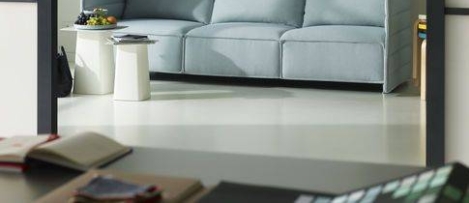


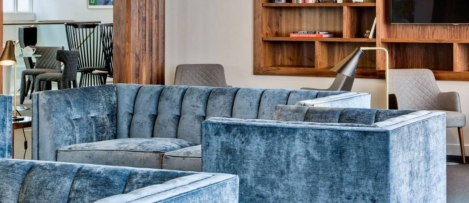
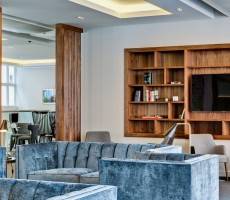


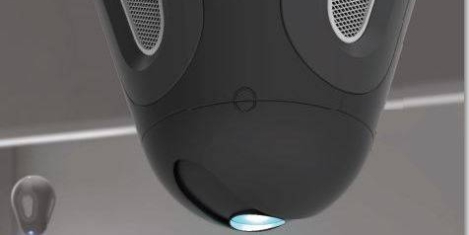




 TechNorth, the Manchester based technology hothouse devised as a regional counterbalance to London, is held in higher regard than the capital’s flagship TechCity development, according to research from recruitment firm Robert Half. The study of IT decision makers across the UK claims that the vast majority would prioritise working with Northern firms over their London counterparts, with 87 percent either ‘highly likely’ or ‘somewhat likely’ to place work with IT businesses in the TechNorth hub rather than those in TechCity London given the choice. The figure is 100 percent for IT leaders based in the North and to 95 percent for those in Scotland. More surprisingly, 80 percent of those based London and the South East said they would prioritise TechNorth, as did 75 percent in the South West and Wales.
TechNorth, the Manchester based technology hothouse devised as a regional counterbalance to London, is held in higher regard than the capital’s flagship TechCity development, according to research from recruitment firm Robert Half. The study of IT decision makers across the UK claims that the vast majority would prioritise working with Northern firms over their London counterparts, with 87 percent either ‘highly likely’ or ‘somewhat likely’ to place work with IT businesses in the TechNorth hub rather than those in TechCity London given the choice. The figure is 100 percent for IT leaders based in the North and to 95 percent for those in Scotland. More surprisingly, 80 percent of those based London and the South East said they would prioritise TechNorth, as did 75 percent in the South West and Wales.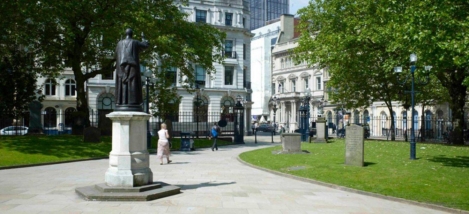
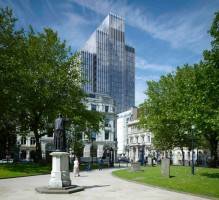 Plans for what is billed as the tallest office building outside of London have been submitted to Birmingham City Council for approval. The proposed 26 storey tower at 103 Colmore Row is planned to stand 346ft (105m) and house some 2,000 office workers. Birmingham is bound to find the scheme attractive as it vies with Manchester for the crown of England’s second city. Up to now, tall buildings have not enjoyed the same appeal in regional cities as much as they have in London. The new building is planned to replace the former NatWest tower which has lain empty on the development site since 2003 and is set to be demolished once plans are finalised for its replacement. If given a green light, the new scheme will incorporate a rooftop restaurant, green roof, terraces, street level shops and cafes and a winter garden.
Plans for what is billed as the tallest office building outside of London have been submitted to Birmingham City Council for approval. The proposed 26 storey tower at 103 Colmore Row is planned to stand 346ft (105m) and house some 2,000 office workers. Birmingham is bound to find the scheme attractive as it vies with Manchester for the crown of England’s second city. Up to now, tall buildings have not enjoyed the same appeal in regional cities as much as they have in London. The new building is planned to replace the former NatWest tower which has lain empty on the development site since 2003 and is set to be demolished once plans are finalised for its replacement. If given a green light, the new scheme will incorporate a rooftop restaurant, green roof, terraces, street level shops and cafes and a winter garden.
 A new study published yesterday in the British Journal of Sports Medicine claims that office workers spend far too much time sitting, are suffering from a range of conditions and illnesses as a result and so should be encouraged to spend up to half of each working while standing. The report,
A new study published yesterday in the British Journal of Sports Medicine claims that office workers spend far too much time sitting, are suffering from a range of conditions and illnesses as a result and so should be encouraged to spend up to half of each working while standing. The report, 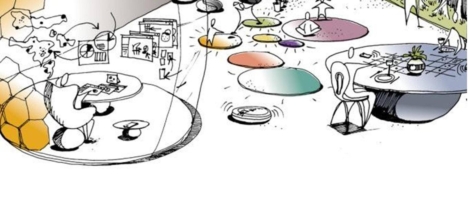
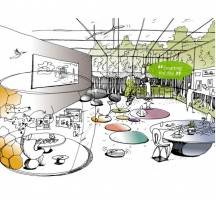











June 10, 2015
Time to get back a sense of proportion about sitting down
by Mark Eltringham • Comment, Wellbeing, Workplace design
(more…)